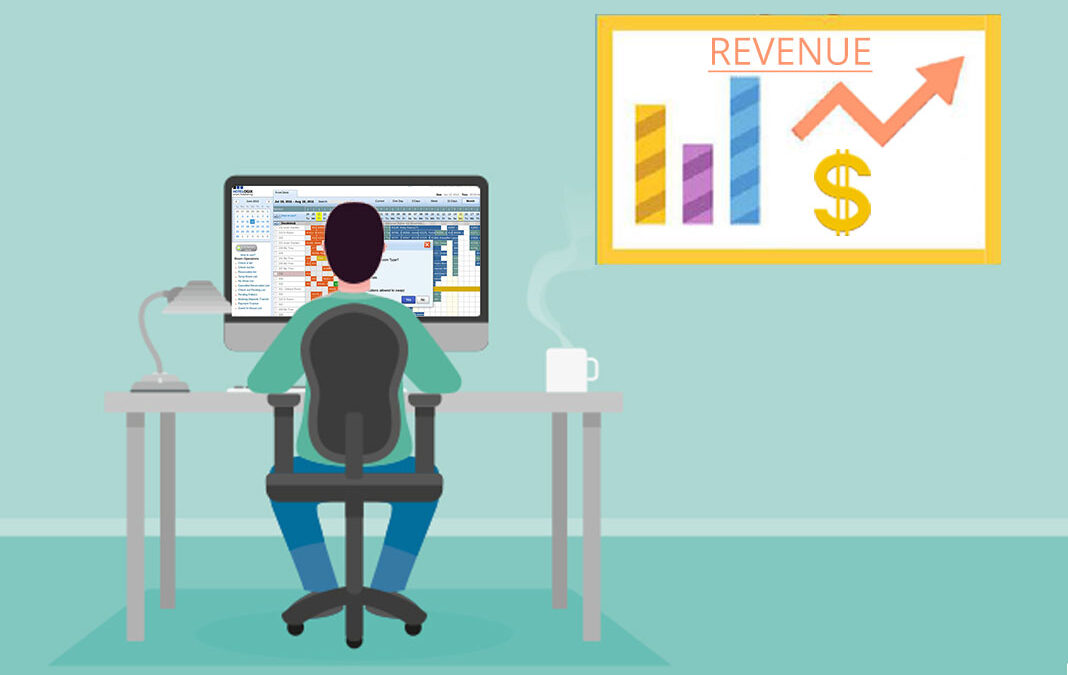Revenue defines a successful hospitality business. You must use various hotel revenue management strategies and initiatives to improve their bottom line. Effective revenue management provides a clear road map for pricing and optimisation and allows a hotel to assess its success. Several aspects must be considered to choose the most effective technique.
What is Revenue Management?
Revenue management is a business method that allows you to optimise your inventories while increasing your earnings. Its precise characteristics change throughout time due to new artificial intelligence systems, procedures, automation, and the overall progress of industry-leading solutions, but its essence remains constant. It entails presenting the most appropriate accommodations to the appropriate client at the right price and time via targeted distribution channels.
Hotel revenue management is critical for hoteliers because it allows them to maximise revenues and returns via innovative technology and big data. The fundamental goal is anticipating market demand and responding to market changes efficiently. Therefore, we must devote all our efforts to developing breakthrough technologies and robust systems that use intelligent automation to increase yield, enhance revenue flow, and improve the guest experience.
As a result, it is critical for the hotel sector to implement new tactics and methods, such as sophisticated revenue management, to stay afloat and reinvent itself, giving considerable commercial success to hoteliers worldwide.
Ways to Improve the Hotel Revenue
Your hotel distribution strategy is also essential to your hotel revenue management strategies; make sure you’re using the best internet distribution channels to market your location online. The correct distribution channels can have a significant marketing impact, bringing your hotel in front of numerous clients you would not otherwise be able to contact.
A safe and advanced hotel revenue management system is required to maximise revenues and returns. Hotels can predict market demand in hospitality using innovative technology and a huge dataset, and they can react to changes in the market by adopting new strategies and systems to maintain high-performance levels.
Segmentation of customers
Customer segmentation is an essential aspect of marketing and pricing since it allows you to identify and address distinct groups of passengers who visit your hotel. Business travellers, for example, have different wants and tastes than backpackers on a budget, so you must know your consumer and be prepared with offers that cater to each category.
Seasonal variations
The hospitality industry is a seasonal one. Depending on the time of year, booking rates will inevitably vary. Seasonal differences can also impact other concerns, such as the number of employees, the sorts of promotions available, and the amount of money clients are willing to spend at any given time. Therefore, this phase also serves as a prelude to the primary strategy that should be implemented.
Making dynamic pricing models
As previously mentioned, competition is fierce in the hotel industry. Therefore, in many circumstances, price is critical. Guests search for more than just high-quality goods and services. When looking for a place to stay, they are just as concerned with how much money they have. This will help to account for the aforementioned seasonal differences while also emphasising management’s understanding of the needs of the average tourist.
Reach out to the right planners via the proper marketing channels
Get in front of corporate and event planners to enhance your venue and group bookings. To increase direct bookings, create a mobile-friendly event website. Planners should be the target audience for your newsletter content. Improve the visibility of your sourcing platform listing.
Inspire local businesses and communities to support your brand
Develop ties with local businesses, tourism boards, business groups, and even residents. This can result in goodwill and word-of-mouth marketing, which is a potent route for building brand loyalty, buzz, and long-term revenue for your properties. Connect locally by providing discounted event space to neighbourhood businesses and civic groups during your quiet season.
Because hotels deal with both past and present data, hotel revenue management is critical to long-term profitability. It can be done by changing strategies and catering to the needs of your hotel and customers. In this industry, automated processes are crucial. Revenue management software provider platforms like RateGain have aided in simplifying and automating all hotel processes, resulting in more memorable experiences and higher commercial profitability.


